IRGC, Hezbollah Take Over Abandoned Russian Bases In Syria - Report

While Russia has begun pulling out its troops from Syria to bolster forces in Ukraine, Iran forces and Lebanese group Hezbollah have reportedly taken over its bases.

While Russia has begun pulling out its troops from Syria to bolster forces in Ukraine, Iran forces and Lebanese group Hezbollah have reportedly taken over its bases.
No Russian official or state media has yet confirmed the transfer.
The current number of the Russian forces in Syria is not known but according to the data by the Russian Defense Ministry, about 63 thousand military personnel were stationed in the country in 2015-2018.
Russia has been a staunch military backer of Syria and started to support Syrian President Bashar Assad with airstrikes in 2015 as government forces were struggling in the Syrian civil war.
Assad visited Tehran on Sunday and received praise by Supreme Leader Ali Khamenei and promises of stronger cooperation.
Although the real purpose of the unannounced visit was not clear, it could strengthen perceptions of Iran's meddling in the region, if its military role expands in Syria in the wake of Russia's entanglement in Ukraine, and now the withdrawal of its forces.
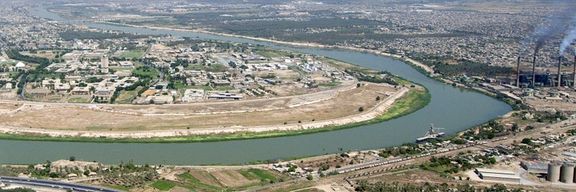
Baghdad will file an international lawsuit against Iran over water disputes, a senior advisor to the Iraqi Ministry of Water Resources said Sunday.
Aoun Diab told the state-funded al-Iraqiya television that the ministry had forwarded a dossier to the government after Iran had failed to respond after requests to discuss its diverting six rivers flowing into Iraq. Diab criticized what he called a lack of cooperation and drew an unfavorable comparison with Turkey given a delegation from Ankara was due to arrive for a field study.
Iraqi officials have for months talked of filing a case with the International Court of Justice, while Iranian officials have suggested Iraq’s chronic water challenge – the United Nations in 2017 ranked it the world’s fifth most vulnerable country to water shortage and food availability – results more from Turkish dams.
In April, Minister of Water Resources Mahdi Rashid al-Hamdani accused Tehran of ignoring Iraqi water rights “even if its dams are filled with water."
Both the Tigris and Euphrates, Iraq’s most important sources of water, originate in Turkey, although tributaries come from Syria and Iran.
Across the Middle East, water shortages have fed tensions between countries and within countries. Iranian officials have warned of a further fall this year in precipitation.
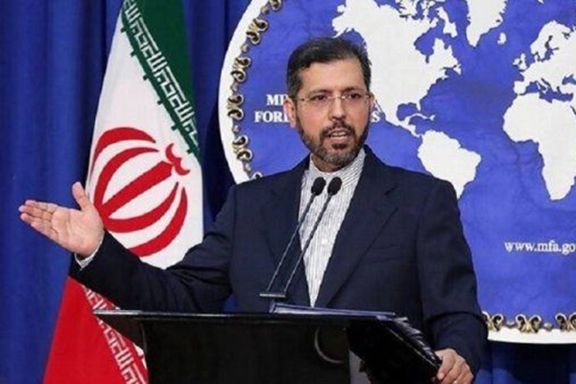
Iran has again criticized the trial in Sweden of former judicial official Hamid Nouri over his alleged role in a wave of prison executions in 1988.
Speaking at a weekly press conference in Tehran Monday, Foreign Ministry spokesman Saeed Khatibzadeh said Sweden had “no jurisdiction” in the case and that the defendant’s “basic rights” had not been respected.
Khatibzadeh denied any connection between Nouri and the case of Swedish-Iranian doctor and academic Ahmadreza Djalali (Jalali), whose death sentence after an espionage conviction was recently reaffirmed six years after his arrest.
A verdict in the Nouri’s trial, which recently concluded, is due in July. He was arrested in 2019 on arrival at Stockholm airport, with his trial beginning August 202l over his alleged role in executions in Gohardasht prison, near Tehran in Iran in July- August 1988.
Khatibzadeh said the Nouri trial was a trap set by the Mujahedin-e Khalq Organization (MEK), an Iranian opposition group. “It is suspicious why the Swedish government is allowing this,” he noted.
MEK members have acted as witnesses, with the court adjourning some sessions to Albania, where the MEK was relocated from Iraq by the United States in 2016. The bulk of victims in 1988 were MEK members or supporters. Both Tehran and Washington have denied that reported talks over a potential prisoner exchange are linked to efforts to revive the 2015 Iran nuclear deal.
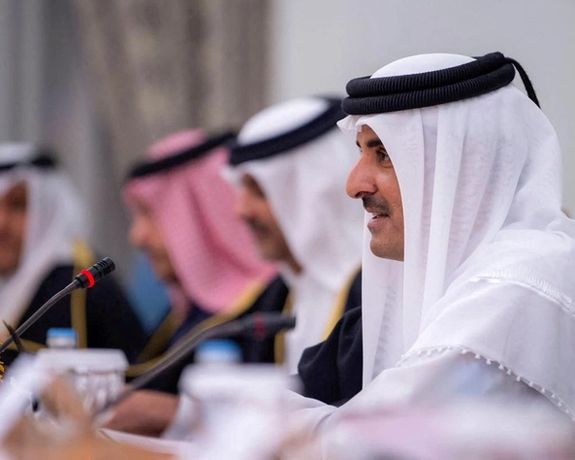
Qatar's Emir will visit Iran soon, Iran's foreign ministry spokesman Saeed Khatibzadeh confirmed on Monday during his weekly news conference.
"The visit of the Emir of Qatar to Tehran is on the agenda and includes bilateral, regional and international issues. After this trip, Iran's President will travel to a Persian Gulf country," Khatibzadeh said.
Citing a source, Reuters reported on Sunday that Emir Sheikh Tamim bin Hamad al-Thani will visit Iran before traveling to Germany, Britain and other European states to discuss efforts to revive Iran's 2015 nuclear deal and energy security in Europe.
The source added the Emir's trip aimed at bringing parties to the Iran nuclear pact to a "new middle ground." This follows an impasse in indirect Iran-US talks over Tehran's insistence that Washington remove the Islamic Revolutionary Guard Corps (IRGC) from the US Foreign Terrorist Organization list.
Other regional countires, including Saudi Arabia, Israel and the United Arab Emirates are opposed to reviving the JCPOA by lifting major economic sanctions and possibly removing IRGC from the US Terror list.
Qatar's Emir last visited Iran in January 2020 to reduce tensions between Tehran and Washington following the killing of top Revolutionary Guard Commander Ghasem (Qasem) Soleimani by the United States whilst on a visit to Iraq.
Iranian state media also reported the Emir's trip was meant to follow up on several bilateral memoranda of understanding signed during Iran's President Ebrahim Raisi's visit to Doha in February.
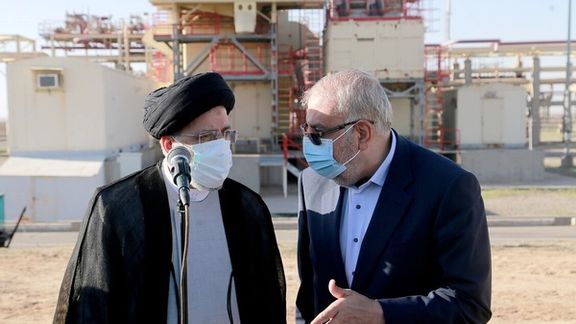
Iranians wonder what has happened to tens of billions of dollars in recent oil revenues, when the economy weakens, the currency keeps falling, and prices rise.
With the deterioration of the economic situation in recent days and the danger of a social explosion, even state-controlled media publish interviews and comments about the mystery of oil revenues and higher taxes collected by President Ebrahim Raisi’s government.
According to official statements by the president and the oil minister, Iran has earned at least $45 billion in the past 12 months from higher exports and prices of crude oil and refined oil products. This is double of what Iran managed to earn in 2020, without any visible impact on the economy.
Hossein Raghfar a professor of economics in Zahra University in Tehran told the Iranian Labour News Agency, ILNA, that the money is being taken out of Iran by corrupt officials.
“The question now is why the impact these revenues are not being felt,” Raghfar said, and insisted, “One of the main reason is flight of capital from the country.”
He did not provide any details or evidence for his claim of massive capital flight, but a recent scandal surrounding the family of the parliament speaker traveling to Turkey for luxury shopping and reportedly buying two expensive apartments there for $1.6 million, speaks volumes about corruption and money taken out of the country by the elite.
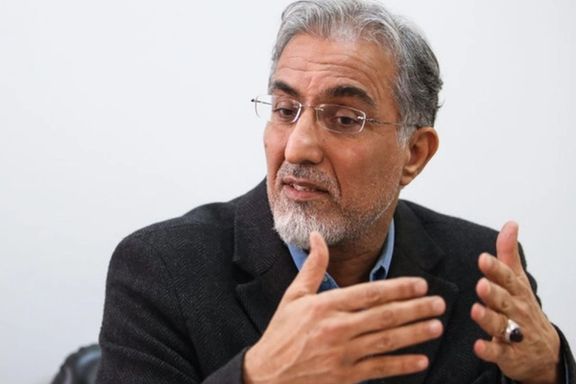
A Turkish nationwide news channel, TGRT, not only confirmed claims by Iranian sources that Mohammad Bagher Ghalibaf (Qalibaf) family purchased apartments but reported that 500 luxury units in the same high-rise complex have been purchased by families of Iranian officials. That would mean around $500 million of illicit funds taken out of the country and invested in just one location in Turkey.
Raghfar said that if government claims of exporting around one million barrels of crude per day are true, Iran can expect around $100 billion of revenue from its traditional financial lifeline. That kind of money should stop the fall in the value of rial, which reached a four-month low on Saturday trading at 285,000 to the US dollar. Just in late 2017, before the United States pulled out of the nuclear agreement known as JCPOA, the rial was trading at 33,000 to the dollar – an almost ninefold fall in less than five years.
The former head of the central Bank, Abdolnaser Hemmati, issued a short video on Sunday saying that the Raisi administration can be called “The sultan of printing money.” Raisi has been claiming that he stopped his predecessor’s practice of generating money for the government by printing more banknotes, but Hemmati said that according to new central bank date the government printed close to $6 billion additional money from August to March, which fuels inflation.
Raghfar also drew attention to large quasi-government companies not paying any taxes, and instead receiving subsidies. These companies are run by political appointees who are friends or family members of top government officials and can easily share funds with others in their circle.
He went to say that currently all major government institution are controlled by conservative (loyal to Supreme Leader Ali Khamenei) and the Raisi government has no excuse of disunity in failing to improve the economy. Why the government is eliminating subsidies for essential commodities, raising the price of bread fivefold, he asked, and said it is not clear what is happening to public wealth.
“Iran’s economy is hostage to various mafia interests, who spend a lot of [public] money and embezzling huge funds,” Raghfar said.
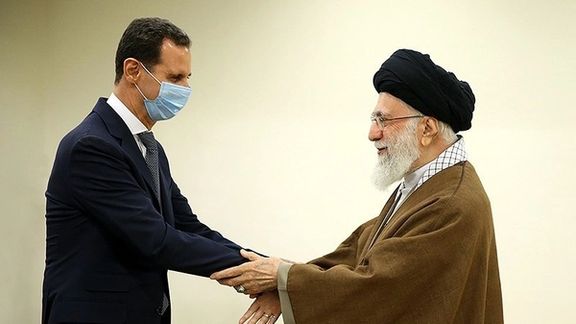
Syrian President Bashar al-Assad paid a quick visit to Tehran Sunday to meet with the Supreme Leader and president for the second time in the past decade.
"Today's Syria is not what it was before the war, although there were no destructions then, but the respect and prestige of Syria is greater than before, and everyone sees this country as a power," Khamenei told Assad, according to Iran' state TV.
Khamenei criticized Arab countries for normalization of relations with Israel. “Some leaders of countries that are neighbors to us and you, have relations with the leaders of the Zionist regime and drink coffee together," he said.
"However, people of the same countries take to the streets on Qods (Quds) Day and chant anti-Zionist slogans, and this is the current reality of the region,” he claimed.
Assad also made a rare trip to the UAE in March, which has normalized its relations with Israel, for the first time since 2011. A week after the visit, Iran's foreign minister, Hossein Amir-Abdollahian took a trip to Damascus during which he said the Islamic Republic welcomed normalization of Syria's relations with Arab countries.
Some Iranians speculated on social media about the possible reasons for the trip, saying that Russia’s invasion of Ukraine might be creating a vacuum in Syria and perhaps a redefinition of Iran’s role.
Referring to the slain commander of the Qods Force of the Revolutionary Guard (IRGC), Ghasem Soleimani, who was killed by American drones in Baghdad in January 2020, Khamenei said Soleimani harbored a "special zeal for Syria" and made sacrifices as he would during Iran's own eight-year war with Iraq (1980-1988).
Soleimani is criticized for involving Iran-backed ground forces in Syria to support Assad and being responsible for the death of tens of thousands of civilians. He supported Russia’s intervention in Syria supplying the ground forces while Moscow used heavy bombing to crush the anti-Assad rebellion.
Khamenei also stressed that the government of President Ebrahim Raisi is "very serious about the issue of Syria" and urged using the opportunity to promote bilateral relations. President Raisi who met separately with the Syrian president said in their meeting that his government's priority was to strengthen strategic ties with Syria.
"Some believe that Iran's support for the "Resistance Axis" is through providing weapons whereas the biggest support and assistance offered by the Islamic Republic is strengthening the spirit of resistance and its continuation," Khamenei said.
Since 2014, the IRGC has deployed brigades of Afghan, Pakistani, and Iraqi Shiites that it has recruited and trained.
In his meeting with Khamenei, Assad stressed the "strategic relations between Iran and Syria" as a major factor in preventing Israel from "dominating the entire region."
According to Nour News, a website linked with the Secretary of Iran's Supreme National Security Council Ali Shamkhani, Assad whose rare visit had not been announced, immediately left Tehran for Damascus.
Assad had visited Tehran once before after the civil war in his country in February 2019. The visit became very controversial as his trip was organized and attended by Soleimani, without the knowledge of the government of Raisi's predecessor, President Hassan Rouhani.
In protest to being kept in the dark, Foreign Minister Mohammad-Javad Zarif who had not even been invited to Khamenei's meeting with Assad resigned from his post. The resignation was not accepted by Rouhani who insisted he should remain in his post.